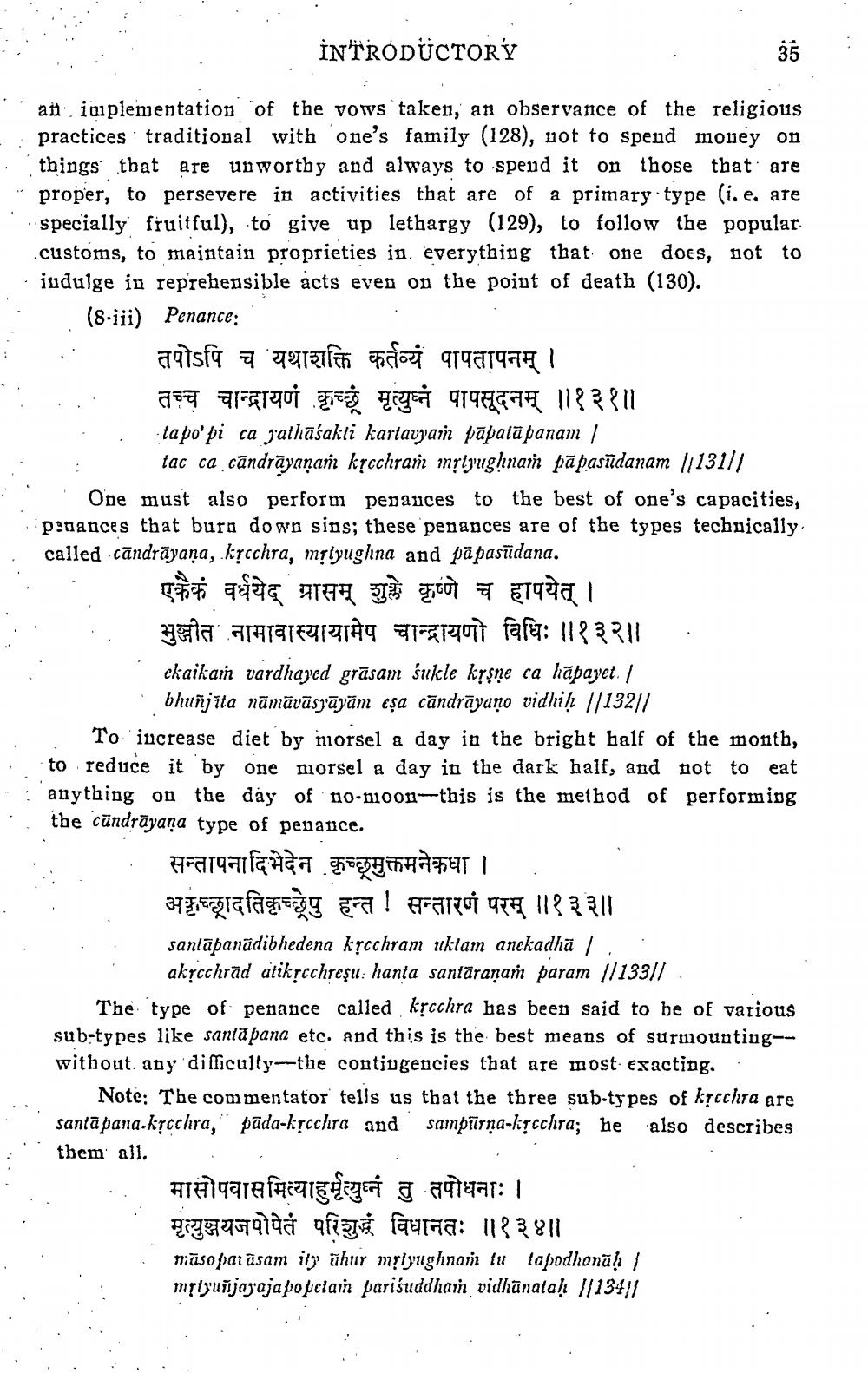________________
INTRODUCTORY
an implementation of the vows taken, an observance of the religious practices traditional with one's family (128), not to spend money on things that are unworthy and always to spend it on those that are proper, to persevere in activities that are of a primary type (i. e. are specially fruitful), to give up lethargy (129), to follow the popular customs, to maintain proprieties in everything that one does, not to indulge in reprehensible acts even on the point of death (130).
(8-iii) Penance:
तपोऽपि च यथाशक्ति कर्तव्यं पापतापनम् ।
तच्च चान्द्रायणं कृच्छ्रं मृत्युघ्नं पापसूदनम् ॥१३१॥
tapo'pi ca jathāśakti kartavyaṁ pāpatāpanam |
tac ca candrāyaṇam kṛechram mṛtyugḥnaṁ pāpasūdanam ||131|| One must also perform penances to the best of one's capacities, penances that burn down sins; these penances are of the types technically. called candrayana, kṛechra, mṛtyughna and papasūdana.
एकैकं वर्धयेद् ग्रासम् शुक्ले कृष्णे च हापयेत् । भुञ्जीत नामावास्यायामेप चान्द्रायणो विधिः ॥१३२॥
ckaikam vardhayed grasam śukle kṛṣṇe ca hapayet. | bhuñjīta nāmāvāsyāyām eṣa cāndrāyaṇo vidhiḥ ||132||
To increase diet by morsel a day in the bright half of the month, to reduce it by one morsel a day in the dark half, and not to eat anything on the day of no-moon-this is the method of performing the candrayana type of penance.
सन्तापनादिभेदेन कृच्छ्रमुक्तमनेकधा ।
अकृच्छ्रादतिकृच्छ्रेषु हन्त । सन्तारणं परम् ॥ १३३॥
santapanädibhedena kṛcchram uktam anekadha
akṛcchrad atikṛcchreşu: hanta santāraṇam param 1/133//
The type of penance called kṛcchra has been said to be of various sub-types like santapana etc. and this is the best means of surmounting-without any difficulty-the contingencies that are most exacting.
Note: The commentator tells us that the three sub-types of kṛechra are santapana.kṛcchra," pada-kṛcchra and sampurna-kṛechra; he also describes them all.
मासोपवास मित्याहुर्मृत्युघ्नं तु तपोधनाः ।
मृत्युञ्जयजपोपेतं परिशुद्धं विधानतः ॥ १३४ ॥
masoparasam ity hur mṛtyughnam tu tapodhonuḥ | mṛtyunjayajapo petaṁ pariśuddhaṁ vidhānataḥ ||134}}




